30 Secrets Every First-Time Home Buyer Needs to Know
Everything to consider before you write that check.

Few experiences in life rival the unbridled joy of finally holding the jingling keys to your very own home. But, as any experienced homeowner knows, that excitement turns sour very quickly if you haven't done your due diligence. To make sure your dream home doesn't turn out to be a nightmare—and to make sure you're setting yourself for a healthy profit when you decide to sell it years down the road—we've compiled everything you need to know about the purchasing process of buying a house right here. So read on, and good luck! And for more great money advice, don't miss these 25 Best Wealth-Building Tips!
1
Your Pre-Approval Status

Before you start discussing the pros and cons of crown molding and picking out flooring samples, get your ducks in a row with a pre-approval. Getting pre-approval from your bank is easy—in many cases, it can even be done online—and having a pre-approval letter in hand can significantly expedite the process when you start applying for your mortgage.
"It's absolutely critical to get a pre-approval well before applying for financing, even before you start looking," says Suzan Eraslan, a licensed real estate salesperson with Bohemia Realty Group in Manhattan. "What you're able to afford depends entirely on how much financing you'll get—you don't want to fall in love with a place that's $500,000, make an offer on it, and find out you can only get $300,000 in financing." Start getting your financial life in order now by discovering the 25 Life-Changing Lessons From Super-Successful Men!
2
Where You See Yourself in 10 Years

A mortgage, much like a dog, marriage, or neck tattoo, is a major commitment, and not one that should be taken lightly. While a mortgage may save you money on a month-to-month basis compared to renting, there's a significant initial investment, from the down payment to legal fees to closing costs. If you're not sure you love the area where you're buying, envision yourself having a family, or are planning on changing careers, buying a house now may be a costlier proposition than it's worth in the end. Make this relationship a keeper by incorporating the 20 Things She Always Wants You to Say into your vocabulary now!
3
Your Credit Score

Whether you've recently paid off your student loan debt or are feeling the burden of those ill-advised credit card purchases you made in college, your credit score can have a major impact on your financial future. For those looking to buy a home, a poor credit score can make it difficult to obtain a mortgage, while a healthy score can keep your interest rates low. Before you even think of buying a house, get your credit score into a healthy range—usually considered to be anywhere north of 700—by paying off debts or increasing your income with these 20 Lucrative Side Hustle Ideas.
4
Whether or Not You Need a Broker

While the idea of finding the perfect place without any unnecessary middlemen may seem appealing, navigating the purchasing process alone may be trickier than you think. "One of the biggest mistakes first-time buyers make is trying to go it alone without an agent to represent their side of the transaction. Buyers who are used to rental markets where broker fees are the norm get into the habit of scouring rental sites thinking that they'll save money by not having buyer representation, but the buyer doesn't pay their agent—the seller does," says Eraslan. "While you can absolutely purchase a home without a buyer's agent, with all the moving pieces of making offers, securing financing, scheduling inspections and appraisals, and managing the timeline of the sale, why wouldn't you offload that to someone else who legally is working in your best interest alone and at no expense to you."
5
How You'll Pay For Upgrades

While HGTV may make it seem as though renovation money falls from the sky the second you close on a house, in reality, securing financing for major renovations is not usually part and parcel of the home-buying process. "Any renovation costs will not be covered by your mortgage. If you're pre-approved for $500k but you find a $250k fixer upper, the bank won't just give the additional $250k to pay for renovations," says Eraslan. "You'll either have to pay for those costs out of pocket, or take out a short-term construction loan to pay for them."
6
How Serious Your Current Relationship Is

Just because moving in together seems like the next logical step in your relationship doesn't mean that buying a house together would be a logical choice, too. Your significant other's credit score, income, and debt can all affect your ability to get a mortgage. Even worse, if you don't see your current relationship lasting, you could be saddled with the burden of a house you can no longer afford alone and contentious legal proceedings to divide assets.
7
How the Home's Appliances Look and Function
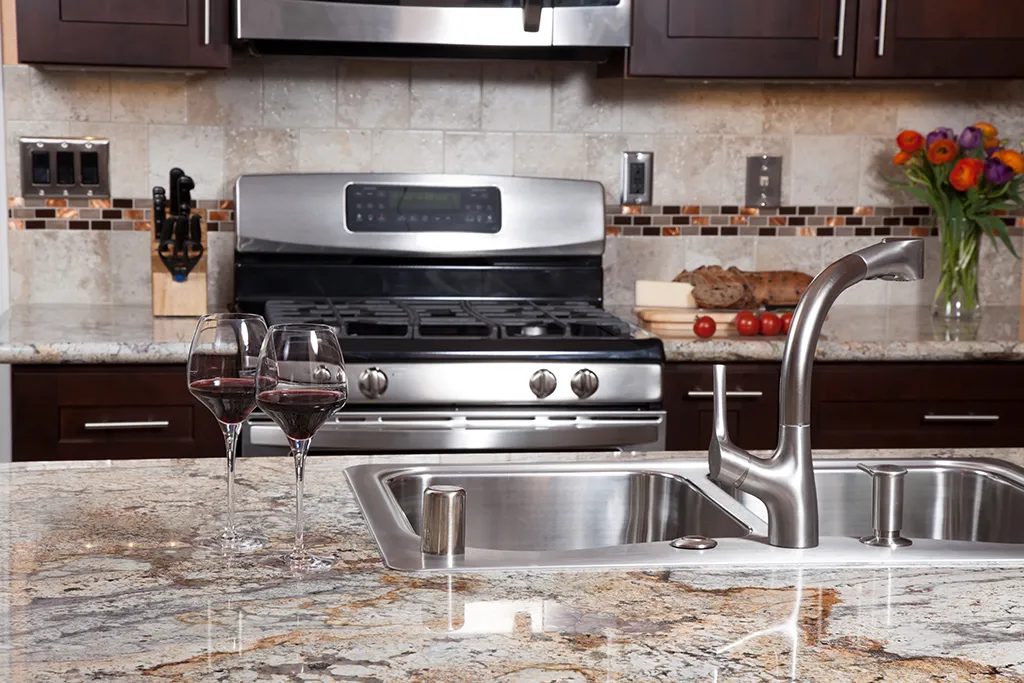
Of course, your potential home's current appliances shouldn't make or break your decision to buy a house, but that doesn't mean you shouldn't take their age and functionality into consideration. A few bad eggs in the bunch could cost you thousands, if not tens of thousands of dollars to replace, and living with a not-quite-functional dishwasher or firetrap dryer isn't exactly ideal, either.
8
The Age of the Property

Older houses can be loaded with charm, but they can also have maintenance issues that you're unlikely to encounter in a newer home. Even if an older home has been well-maintained, you should consider down-the-line costs, like re-plastering ceilings, refinishing hardwood floors, and upgrading the house for maximum energy efficiency. "I recommend getting a thorough inspection done before you go into contract," Eraslan says of those interested in older homes. "The inspector can assess how recently things like the roof, plumbing, and wiring have been replaced, and judging by the type of material, how much longer the life is on those materials."
9
How Good a Negotiator You Are

If the idea of haggling breaks you out in a cold sweat, you might want to brush up on your negotiating skills before you buy. While you can often get a deal on a fixer-upper or a home that's been on the market for more than a few months, in many in-demand locations, you'll have to prepare yourself for some back-and-forth about the price. When discussing your upper limit for pricing with your real estate agent, make sure you leave some wiggle room for negotiations in case the seller gets multiple offers.
10
The Condition of the Foundation

Both pricey and difficult to address, foundation issues are a viable reason for walking away from what otherwise seems like a perfect home. Eraslan says that foundation problems are a major issue that won't be easy for anyone without deep pockets to repair—this definitely isn't an area in which you want to test your DIY ability.
11
How Much You Can Actually Afford

So, your bank's mortgage calculator says that your lack of student loan debt, your healthy income, and low cost of living make you the perfect candidate for a million-dollar mortgage—awesome, right? Well, before you start touring McMansions, consider variables that might make that pricey house harder to afford in the future. If you're considering a career change, want to have kids, or have other significant expenses on the horizon, that monthly payment can become unmanageable fast. When you're looking at houses, buy something slightly less expensive than what you can afford and save that extra money for a rainy day.
12
If There's a Homeowner's Association

Being part of a home owner's association may seem like a dream to those concerned about their neighbors' poorly-maintained properties lowering their home's resale value, but dealing with an HOA isn't a universally-positive experience. Not only can HOAs mean that you can't so much as paint your front door or decorate for Halloween the way you'd hoped, they can also mean higher up-front costs.
"Homeowners associations and condo boards can be very strict about finances," says Eraslan. "While the bank may approve you for a loan to buy the home with just the down payment in the bank, the HOA may require that you have two years of post-closing assets. That means you need to have the money in the bank to pay your mortgage and whatever property taxes and common charges are associated with the home for two years, even if you never earned another cent in income."
13
How Much it Sold For Previously

If the home you're considering has had a serious price bump since the past owner bought it, you'd better hope that you're getting some major upgrades, too. While a major price hike can often be the sign of a flipped home, many sellers in competitive markets will try to capitalize on un-renovated homes too, meaning you may have some wiggle room when it comes time to negotiate if you know the previous purchase price and have appropriate comps.
14
What Kind of Floors You Have

The floors in your home might not be the durable hardwood you were hoping for. If the flooring in the home you're thinking about buying is looking a little worse for wear, use that as a negotiating point when you're talking price. "A lot of people don't think about their floors, but most 'hardwood' is actually a thinner composite wood with a hardwood-style finish that will only withstand two to three refinishings," says Eraslan. "A good inspector will be able to tell you what type of flooring you have and how many more sandings it can take before it has to be completely replaced."
15
Your Employment Status

Bad news, freelancers: even if you have a decent income, it might be harder than you think to get a mortgage. Non-traditional income earners often have variable finances, pay higher taxes, and can seem less likely to be able to afford a mortgage in the long-term to creditors. If you're buying with a partner who's employed full-time, putting the mortgage in their name may be helpful.
16
When the Pipes Were Installed

You don't have to be a rocket scientist to fix a leaky faucet, but old pipes can mean a major renovation down the line. "Walls and even floors may have to be opened up or even demolished to replace pipes," says Eraslan. Even worse, older pipes have the potential to contaminate your water with lead, which can lead to serious illness, behavioral issues, and developmental delays in children.
17
How Much a Renovation Will Cost

Think that house you just toured would be perfect with just a few walls taken out? Before you pull out your checkbook, price out what you consider essential renovations online. Sites like AngiesList and Houzz have construction estimates that can help you envision what you'll really end up paying to own your dream home. "If you already know you're not interested in DIYing, it's critical to get some professionals into the apartment to give you estimates on how much it will cost to repair or replace whatever needs fixing up," says Eraslan. "Many buyers will calculate the cost of materials but won't take into consideration the labor involved."
18
Whether All Previous Renovations Were Permitted
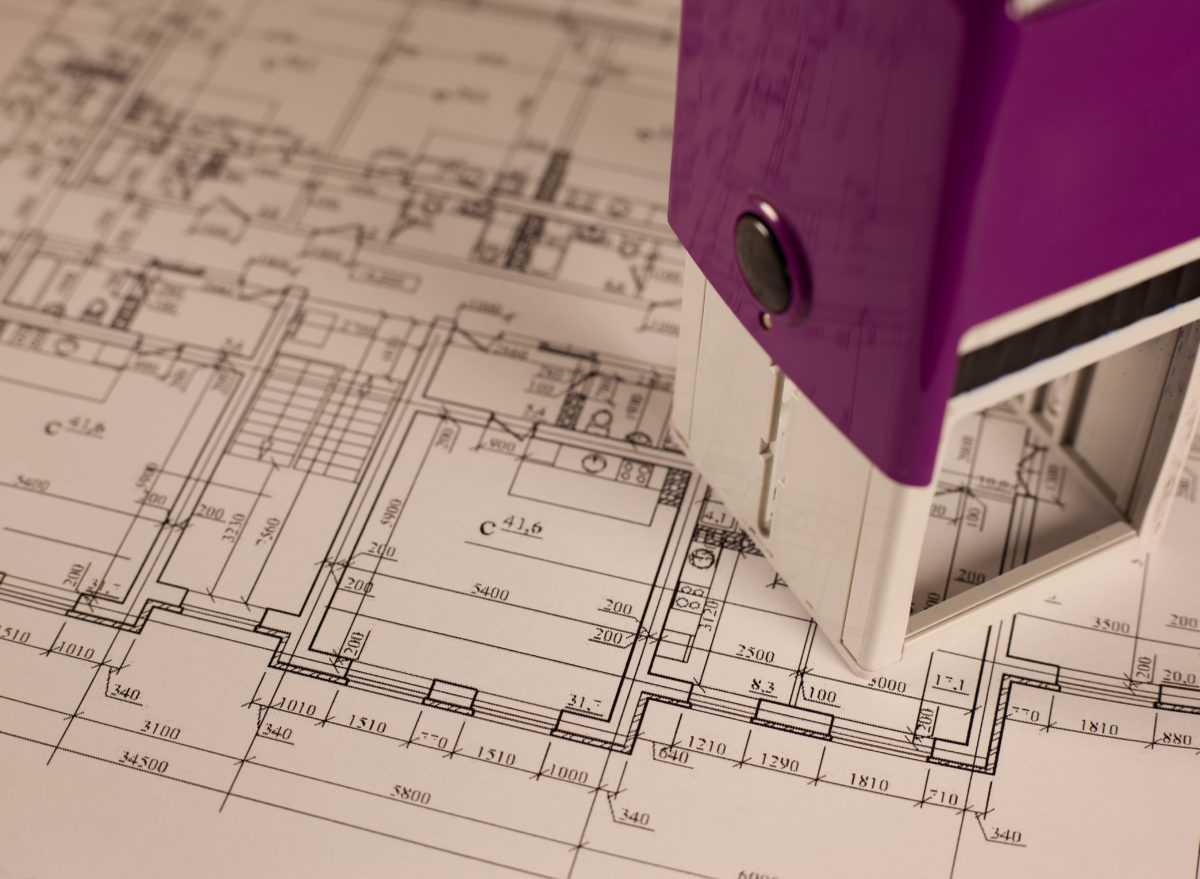
An un-permitted DIY renovation could mean a serious headache and financial burden in the future. Un-permitted renovations can increase a home's risk of structural damage, violate your homeowner's insurance policy, make you a target for future lawsuits, and you may even need to rip them out at significant cost to you before you sell. Avoid this monumental hassle by looking up previous permit applications before you buy.
19
If There's Potential For Lead Paint

Older homes may have a lot of character, but many of them also have lead paint lurking. If your home was built before 1978, it's likely that there's some lead-based paint in it. While well-maintained lead paint doesn't present much of a danger, if it's chipping or peeling, it can easily become a danger to you and your family, and getting it removed can cost tens of thousands of dollars. Before you buy, find out how much abatement has been done over the years and consider the potential cost of hiring an EPA-certified lead encapsulation or abatement professional, too.
20
How Much Similar Properties Have Sold For

So, you've found the perfect home in the perfect neighborhood, but it's $50,000 more than every other house on the block—what gives? Many sellers working without real estate agents will price their homes too aggressively, even if the upgrades they've done don't necessarily merit that kind of price hike. Do your research on comparable homes, even touring similarly-sized ones in the neighborhood, so you have a negotiating tool to bring the price into a more reasonable range.
21
When the Electrical System Was Updated
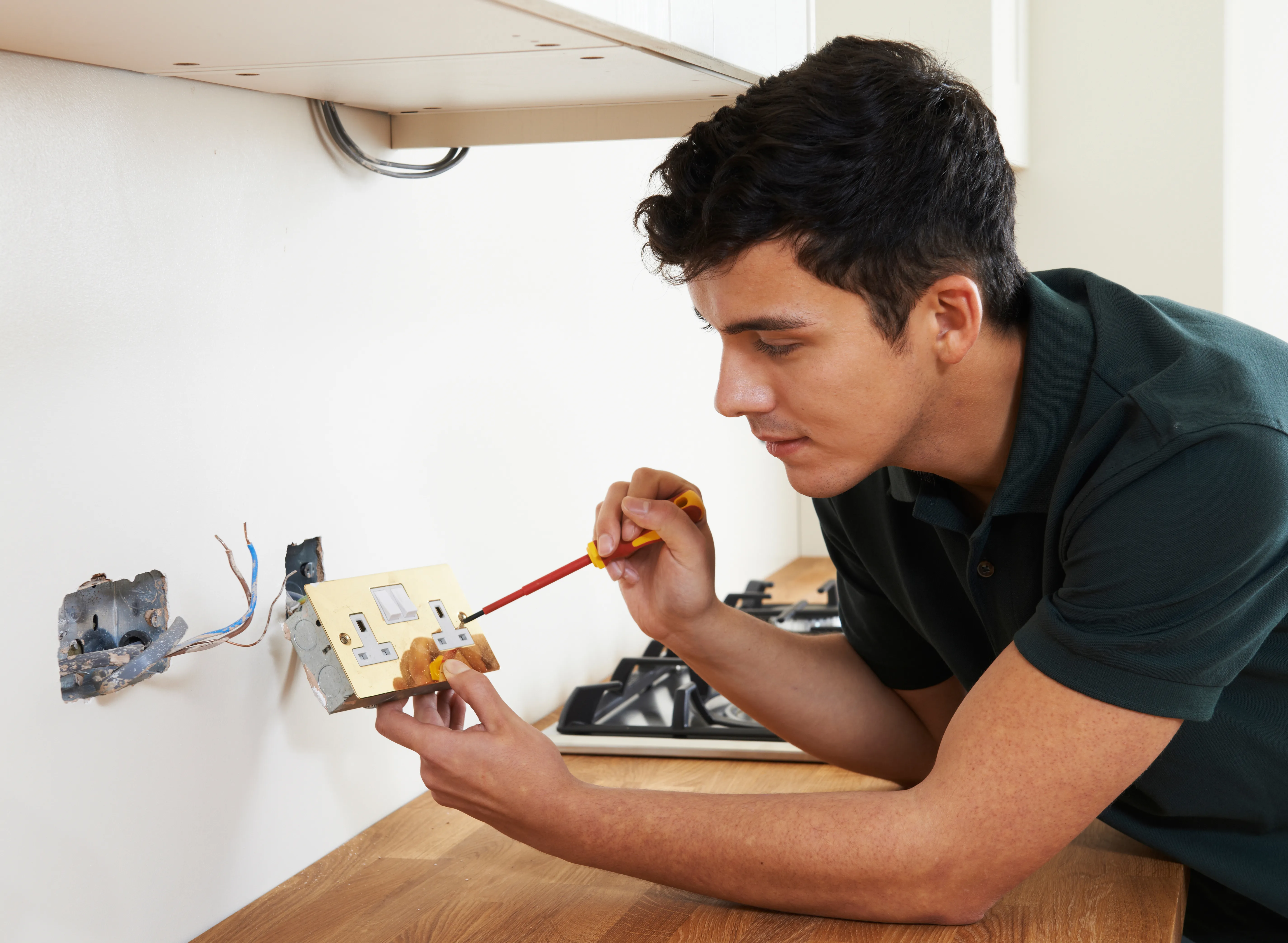
The Electrical Safety Foundation International reports that electrical issues cause approximately 51,000 fires and more than $1.3 billion in damage each year. Before you decide to drop your hard-earned cash on a down payment, inquire about any electrical upgrades that have been made to the house. Something as simple as upgrading from 110 to 220-volt service can cost a few thousand dollars, while ripping out knob-and-tube wiring and replacing it can cost thousands more.
22
Previous Pest Issues
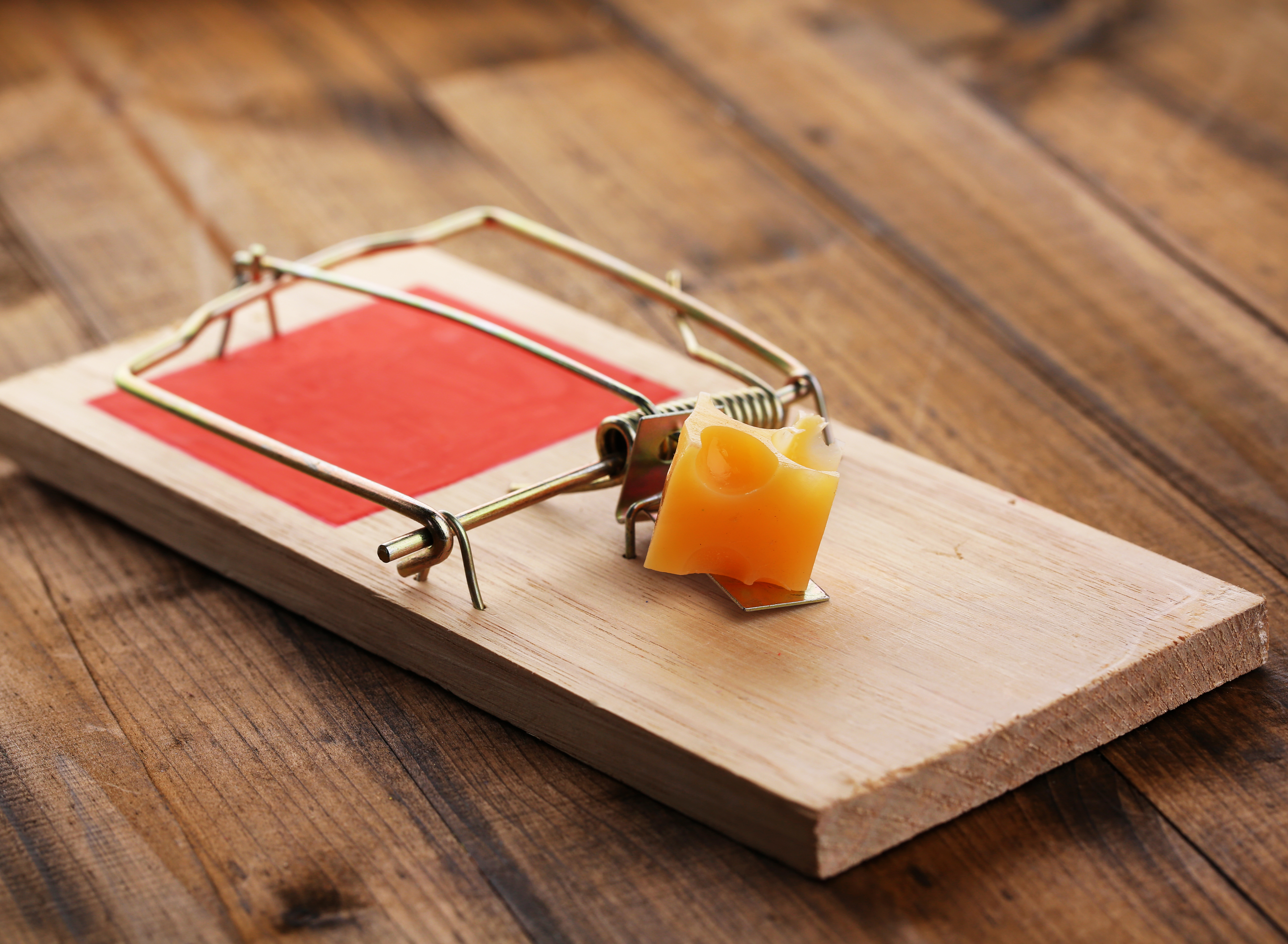
Unwanted guests are always a nuisance, but when they're actually eating through your house, they're a downright menace. If there's evidence of carpenter bees, bed bugs, or termites in a home, you may want to pass; while four-legged pests, like mice, are relatively easy to get rid of, bug infestations can cost thousands of dollars to remedy and can leave your home with structural damage.
23
If You Need to Make Another Big Purchase Soon

If you're in the process of applying for a mortgage, you'd better hope your car is in tip-top shape. What does one have to do with the other? Taking on additional debt when you're trying to buy a house might just mean that your loan offer dries up. Taking on any additional debt during the home-buying process could mean that a lender turns you down, forcing you to start the whole process over months or years down the line. Before you watch your bank account dwindle, make sure you know the 25 Best Wealth-Building Tips Ever!
24
How Much Sweat You're Willing to Put Into It
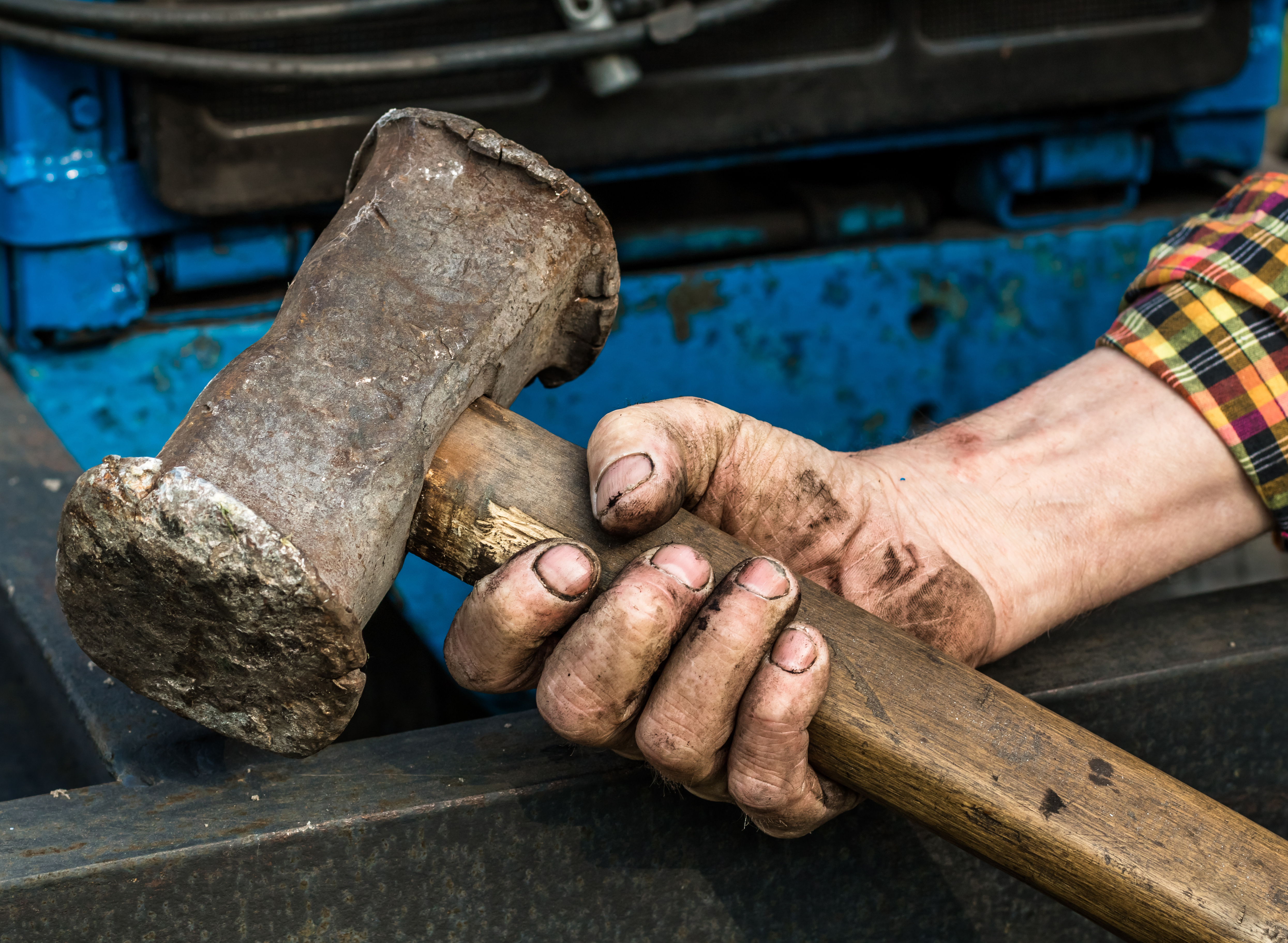
Are you willing to get a little messy in pursuit of the perfect house? If you're not willing to wield a paintbrush, do some DIY demolition, or learn how to install new fixtures, a less-than-turnkey home isn't for you. "It's important to be honest with yourself about how handy you are," says Eraslan. "Fixer upper TV shows and home renovation websites will give you the impression that you can remove that ugly 1950s pink bathroom tile and replace it with chic subway tiles in a weekend, but the people doing these projects are professionals."
25
Your Asbestos Risk
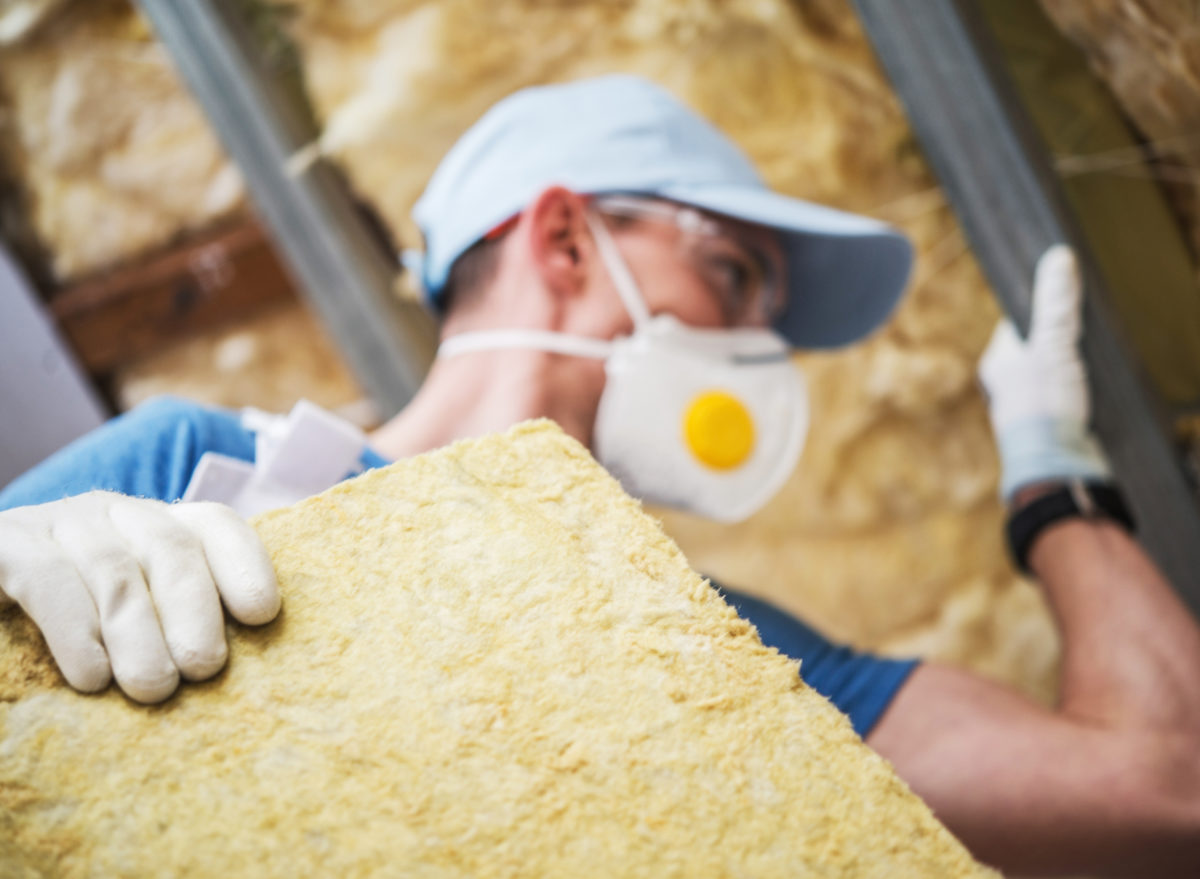
Before you hand over a down payment, it's important to know where asbestos might be hiding in your home. While undisturbed asbestos isn't necessarily a major health risk, it could easily become one during renovations, especially if you're doing them yourself. Asbestos can lurk everywhere from vinyl flooring to insulation to popcorn ceilings, and it can cost thousands of dollars to have it removed safely. Before you think about buying, have an inspector assess the home's asbestos risk and get a lab to test potential asbestos-based materials to confirm.
26
How Liquid Your Assets Are

Having a healthy net worth is great, but money tied up in investments isn't nearly as helpful as cash in hand when it comes to buying a home. Before you make a major investment in a house, think about liquefying some of your assets—the odds your local roofing company accepts bitcoin are, sadly, quite slim. Start on the path to a healthier financial future with the 20 Savviest Investment Moves to Make Right Now!
27
How Long You'll Live There

You shouldn't put off buying a home just because you have a busy travel schedule, but if you see yourself moving in the next few years, renting might be a better option. "If you're planning on moving in the next one or two years, buying may not make sense," says Eraslan. "The turnaround on selling, like buying, is much slower than renting, so you probably don't want to spend most of the time that you're living there hosting open houses every Sunday."
28
How Much Home You Actually Need

While a so-called starter home may be cheaper now, it could cost you more in the long run. If your family members, pets, or collection of Star Wars memorabilia are likely to increase in the future, you may end up spending more than you wanted to buy and sell your suddenly-too-small house. "Americans tend to accumulate a lot of stuff, and it's always easier to find a great wing chair at an estate sale to fill up an empty corner than to try to Konmari your whole life every few months," says Eraslan.
29
Whether the Finances Work in Your Favor

If a down payment on a house is going to mean taking out a loan at an exorbitant rate or eating ramen on an air mattress for the next 30 years, home ownership might not be the best option for you right now. However, just because you're not diamond-pinky-ring-flush doesn't mean you shouldn't buy if you have the cash for a down payment. "In most cases, buying provides ample tax write-off benefits, your monthly mortgage will usually be less than rent on a home of the same size, and you have the opportunity to make a return on your investment when you sell it, while rent is just money you will never see again, period," says Eraslan. Start enjoying a healthier financial life today by discovering the 25 Things Rich People always Do!
30
How Long You Have to Look

Think you'll see your dream house online and move in the following week? Think again. Eraslan recommends that buyers give themselves no less than six months to search for a home to buy, although a year is often optimal: "This gives you time to meet with a buyer's agent, get preapproved for a loan, and make a financial plan, if necessary, to correct any credit issues or adjust your spending to save for a down payment and closing costs." Start building a solid foundation for your financial future today with the 31 Best Ways to Save For Retirement!





















